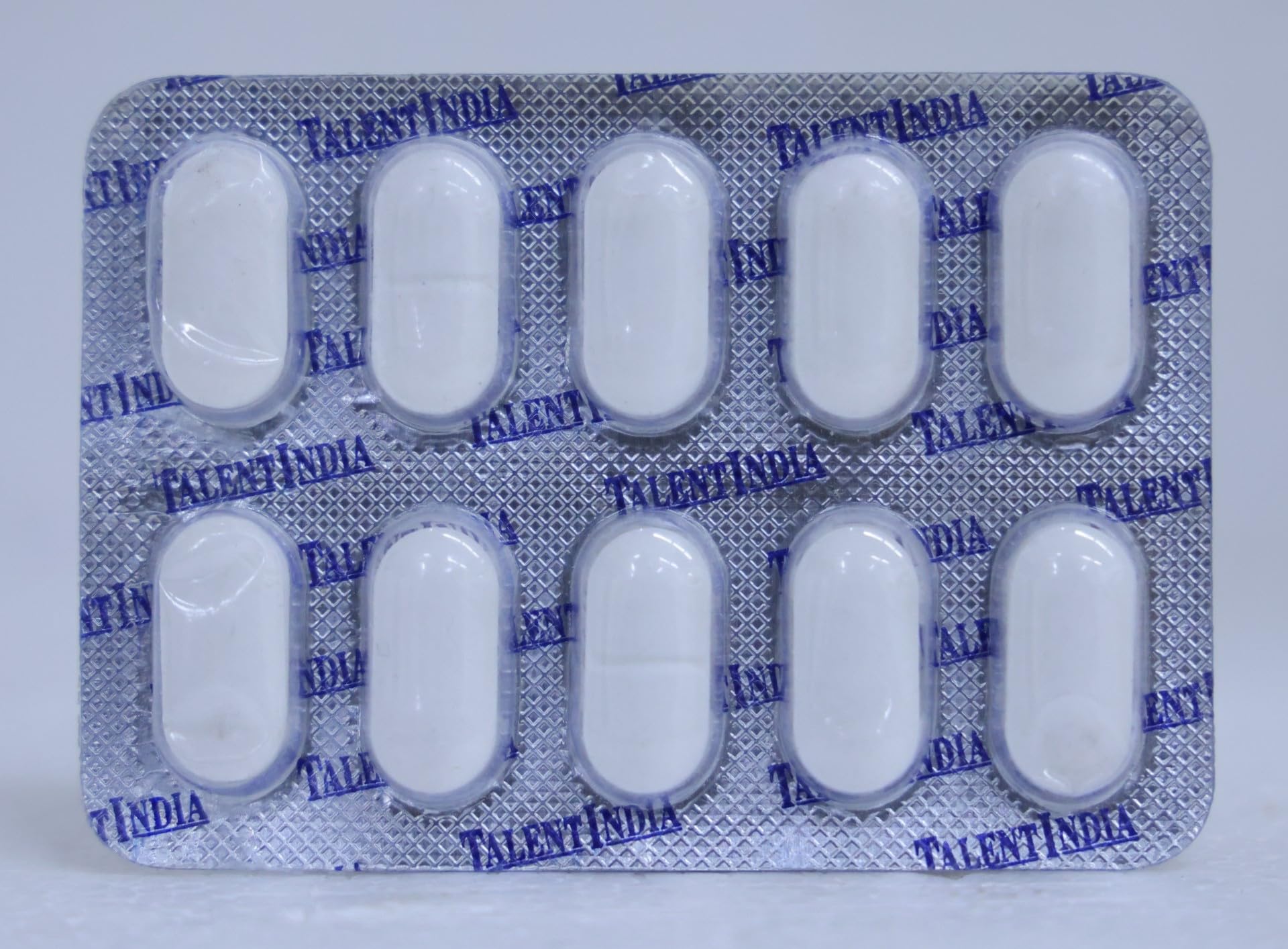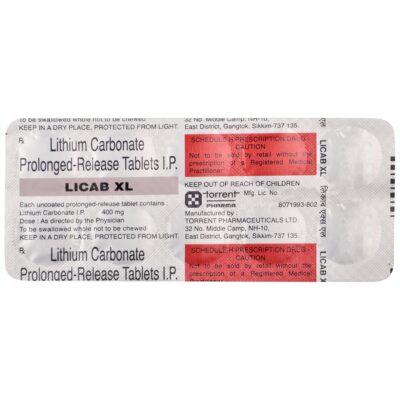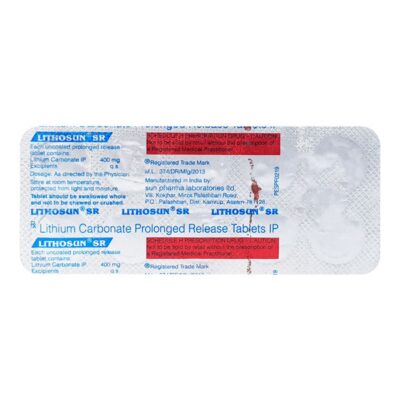🧠💊 Lithium Carbonate 400mg Tablet: A Mood Stabilizer for Bipolar Disorder Management
Lithium Carbonate 400mg is a prescription medication used primarily as a mood stabilizer in the treatment and long-term management of bipolar disorder, particularly in controlling manic episodes and reducing the frequency and severity of mood swings. It is also used off-label for conditions like schizoaffective disorder and treatment-resistant depression. Lithium is one of the oldest and most effective psychiatric medications, known for its ability to reduce the risk of suicide in mood disorders.
🧪 Mechanism of Action
Although the exact mechanism of action is not fully understood, Lithium is believed to work by:
-
Modulating neurotransmitter activity (e.g., serotonin, norepinephrine, dopamine)
-
Enhancing neuroplasticity and promoting cell survival in the brain
-
Affecting second messenger systems involved in mood regulation (such as inositol monophosphate and G-proteins)
Its stabilizing effect on mood is likely a result of multiple subtle changes in brain signaling pathways over time.
📋 Indications
Lithium Carbonate 400mg is indicated for:
-
Acute mania in bipolar disorder
-
Maintenance therapy to prevent manic and depressive episodes in bipolar disorder
-
Augmentation of antidepressant therapy in major depressive disorder (off-label)
-
Aggression and impulsivity in certain psychiatric disorders
-
Schizoaffective disorder and cluster headaches (off-label)
💊 Dosage & Administration
-
The dosage is highly individualized and guided by serum lithium levels.
-
Starting dose: Usually 300–600 mg daily, divided into 2–3 doses.
-
Maintenance dose: Commonly 900–1800 mg per day in divided doses.
-
Target serum level: 0.6–1.2 mEq/L (checked regularly through blood tests).
-
Lithium carbonate 400mg may be used as part of a divided dose regimen (e.g., morning and evening).
💡 Important: Lithium must be taken with food and plenty of water to reduce gastrointestinal upset and prevent dehydration.
⚠️ Precautions & Warnings
-
Requires regular monitoring of:
-
Serum lithium levels
-
Kidney function (creatinine)
-
Thyroid function (TSH)
-
-
Avoid dehydration and high salt fluctuations, as both affect lithium levels.
-
Not recommended during pregnancy (especially first trimester) unless benefits outweigh risks due to teratogenic potential.
-
Use with caution in elderly or those with heart/kidney disorders.
😷 Side Effects
Common side effects:
-
Tremor
-
Increased thirst and urination
-
Nausea, diarrhea
-
Weight gain
-
Drowsiness
Serious side effects:
-
Lithium toxicity (slurred speech, confusion, vomiting, seizures, irregular heartbeat)
-
Hypothyroidism
-
Kidney damage with long-term use
-
Cardiac arrhythmias
Seek immediate help for signs of toxicity or severe side effects.
🔄 Drug Interactions
Lithium interacts with:
-
Diuretics (especially thiazides)
-
NSAIDs (ibuprofen, naproxen)
-
ACE inhibitors/ARBs
-
Antidepressants and antipsychotics (risk of serotonin syndrome or neurotoxicity)
Always consult a doctor before adding or stopping medications.
🧊 Storage & Handling
-
Store at room temperature, away from moisture and light.
-
Do not crush or chew extended-release tablets.
✅ Conclusion
Lithium Carbonate 400mg remains a gold-standard mood stabilizer, particularly effective in treating bipolar disorder and preventing suicide. Its success relies heavily on regular monitoring, patient adherence, and maintaining hydration and consistent salt intake. When managed well, lithium offers long-term emotional stability and life-saving benefits for individuals with mood disorders.
Note: This information is intended for educational purposes and should not replace professional medical advice. Always consult a healthcare provider for personalized guidance.



Reviews
There are no reviews yet.